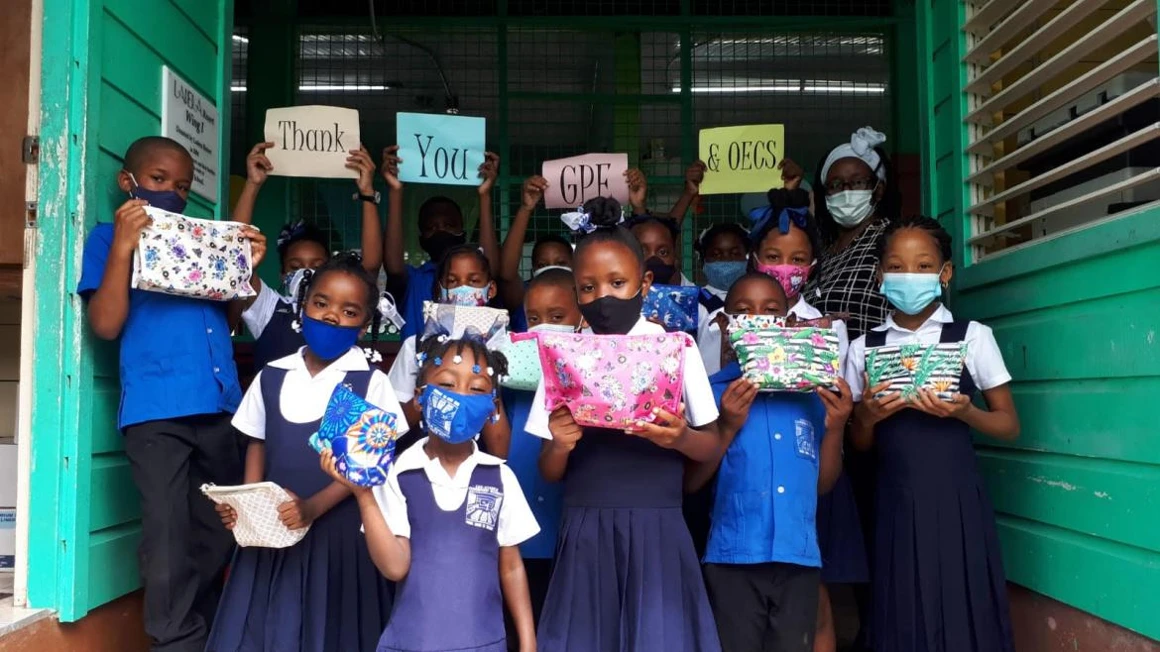OECS Commission hosts successful COVID-19 resurgence contingency planning workshop

Three virtual capacity building workshops provided education professionals with the skills and tools to build resilient education systems in the face of pandemics and other emergencies.
Thursday, October 28, 2021 — In February 2021, the Education Development Management Unit (EDMU) of the OECS Commission hosted 3 virtual workshops on COVID-19 Resurgence Contingency Planning for 130 education officials from the 9 English speaking OECS territories. The workshop aimed to build technical competence for Ministries of Education staff in key areas needed to nurture and sustain resilient education systems in the face of pandemics and other emergencies.
The workshop, held on February 11, 18 and 24 of 2021, was made possible with financial support from the Global Partnership for Education through the COVID-19 grant.
UNICEF’s Office for the Eastern Caribbean along with technical expertise from Caribbean Disaster Emergency Management Agency (CDEMA), UNESCO in collaboration with McKinsey and Company, the Caribbean Public Health Agency (CARPHA) and CARICOM Secretariat also supported the workshop.
Through the informational and practice-oriented sessions, the workshop provided participants – including Ministry of Education officials, school leaders, teachers, and support staff – with skills and tools to provide a coordinated emergency management approach in the sector during the pandemic.
Ultimately, and more importantly, this enhanced capacity will ensure that COVID-19 and similar crises will be less disruptive to students.
To this last point, Emma Dorn, Global Education Practice Manager, McKinsey and Company commented:
“We were privileged to partner with UNESCO to discuss the COVID-19 Education Response Toolkit with the OECS nations – it was inspiring to hear how much has already been done in the midst of the pandemic, and jointly discuss how to support students and teachers going forward – not just academically but also with broader socio-emotional learning and growth.”

Workshop facilitator and Education and Training Specialist for CDEMA, Gayle Drakes, reminded participants of the importance of the training and the benefits of the collaborative approach taken:
“Robust planning is vital to ensuring safe, resilient schools, and the COVID-19 pandemic crisis has had a number of implications for contingency and continuity planning in the education sector. CDEMA is pleased to partner with the OECS and UNESCO to strengthen the sector’s capacity to plan for current and future challenges and ensure that learning continues in the safest possible spaces.”
The importance of cultivating resilience in the education sector was further emphasized by co-facilitator, Dr. Satoko Yano, from the UNESCO Division of Policies and Life-Long Learning Systems: “The COVID-19 pandemic disrupted education and learning in an unprecedented manner across the globe. At the same time, it also enabled us to come together to jointly respond to the challenges. This will not be the last pandemic we will face – UNESCO looks forward to continuing to facilitate mutual learning to make our education systems more resilient.”
By all accounts, the workshop was a success. More than 90% of the participants agreed the workshop was useful, offering new skills and insights and 80% mentioned practical components were directly relevant to their respective work.
One key area flagged for follow-up has been the need to strengthen the availability and use of information and data for education planning in times of crises. The OECS EDMU is in the process of supporting Member States in responding to this need.
About the Organisation of Eastern Caribbean States:
The Organisation of Eastern Caribbean States (OECS) is an international organisation dedicated to economic harmonisation and integration, protection of human and legal rights, and the encouragement of good governance among independent and non-independent countries in the Eastern Caribbean comprising Antigua and Barbuda, Commonwealth of Dominica, Grenada, Montserrat, St. Kitts and Nevis, Saint Lucia, Saint Vincent and the Grenadines, British Virgin Islands, Anguilla, Martinique and Guadeloupe.
About the Global Partnership for Education:
The Global Partnership for Education (GPE) is the largest global fund solely dedicated to transforming education in lower-income countries, and a unique, multi-stakeholder partnership. The GPE works to deliver quality education so that every girl and boy can have hope, opportunity and agency.
About the OECS Education Sector Strategy:
The OECS Education Sector Strategy (OESS) endorsed by the Council of Ministers of Education in May 2011 was accepted as the framework for educational development in Member States. With a vision of “Every Learner Succeeds,” the main purpose of the OESS is to guide the educational directions and priorities of Member States. Following a mid-term review (MTR) in 2019, the strategic priorities of the OESS were deemed still relevant and Member States therefore endorsed an extension of the strategy to 2026.





